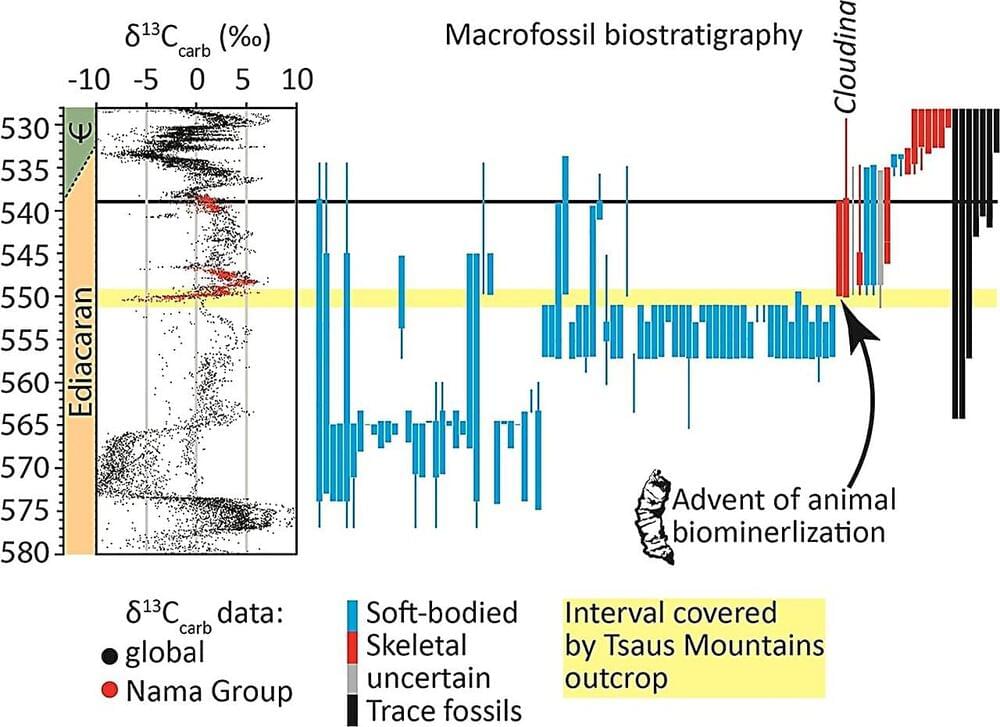Life on Earth began from a single-celled microbe, while the rise to the multicellular world in which we live arose due a vital chemical process known as biomineralization, during which living organisms produce hardened mineralized tissue, such as skeletons. Not only did this phenomenon give rise to the plethora of body plans we see today, but it also had a major impact on the planet’s carbon cycle.
Fossil skeletons of cloudinids (Cloudina), tubular structures comprised of carbonate cones up to ~1.5cm in length, have been found in Tsau Khaeb National Park, Namibia, dating back to 551–550 million years ago in the Ediacaran (~635–538 million years ago). Dr. Fred Bowyer, from the University of Edinburgh, and colleagues aimed to use these fossils to define the location, timing and reason for why biomineralization initiated on Earth and the magnitude of its impact.
New research published in Earth and Planetary Science Letters combines sediment analysis with geochemical data in the form of carbon and oxygen isotopes (the same element with different atomic masses) from limestones in the Kliphoek Member, Nama Group. The research team suggest this rock was once deposited in a shallow sea during a lowstand before a period of transition to open marine conditions.
